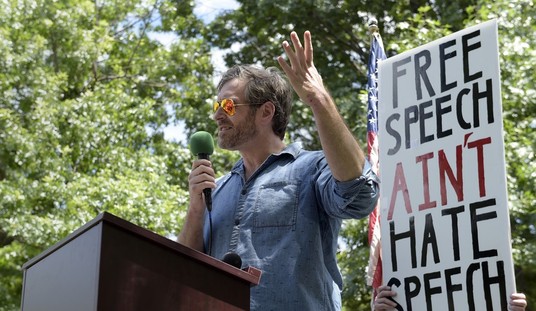WASHINGTON – Rep. Dana Rohrabacher (R-Calif.) on Tuesday recommended that U.S. military forces shoot down the next round of test missiles fired by North Korea.
“I hope that the next time the North Koreans decide to launch a rocket over our ally Japan, I would hope that we shoot it down as a message to North Koreans and other people in Japan who are counting on us, and unless we demonstrated that we’re willing to use force, there’s no reason for them to believe we will,” Rohrabacher said during a House Foreign Affairs Committee hearing, while also suggesting the U.S. carry out attacks against North Korea.
North Korea has fired 21 missiles in 14 different tests since February, including an Aug. 29 launch over northern Japan – a test in which the North Korean regime threatened to target waters near U.S. territory in Guam. That’s not counting a new report today from the South Korean military that the North test-launched another missile, which flew east of Pyongyang nearly 2,300 miles and passed over Japan.
The UN Security Council this week agreed on what it described as the toughest sanctions ever levied against North Korea, with unprecedented limits on oil imports and textile exports. U.S. ambassador to the United Nations Nikki Haley said the latest Security Council resolution is an attempt to cut off financing for Kim Jong-un’s intercontinental ballistic missile program.
Rohrabacher said on Tuesday that sanctions alone will have no impact on a regime that has no issue with murdering its own family members. Rep. Brad Sherman (D-Calif.) made similar remarks during the hearing, saying that he has watched 20 years of administrations conceding to North Korea while the reclusive county’s GDP has grown by more than 50 percent. The focus, he said, should be on individuals, banks and corporations in China that have subsidized North Korea’s bad behavior.
“We don’t threaten China even a little bit with country sanctions because that would be politically difficult for the United States to do,” Sherman said, while asking State Department and Treasury Department officials if there is a plan in place to impose sanctions on China. The Security Council resolution was reached after concessions were made to avoid veto threats from Russia and China.
Marshall Billingslea, assistant secretary for Treasury’s Office of Terrorism and Financial Intelligence, agreed with Sherman that China is the “center of gravity” for North Korean economic progress.
“I cannot tell the committee today that we’ve seen sufficient evidence of China’s willingness to truly shut down North Korean revenue flows, to expunge North Korean illicit actors from its banking system or to expel the various North Korean middlemen and brokers who are continuing to establish webs of front companies,” Billingslea said. “We need to see that happen.”
Chairman Ed Royce (R-Calif.) said that Sherman was asking the “bottom-line” questions in asking for information on China. Royce said that China clearly knows that North Korea’s coal industry has been circumventing international sanctions and that Chinese banks are not willing to comply.
“This is where the discussion needs to go next if there isn’t full compliance with the sanctions the UN has passed,” Royce said. “Because what’s at risk is our national security, and there’s only one way to shut a program down with a country like North Korea that doesn’t have its own revenues.”
“For 20 years, we’ve talked about company sanctions, instead of country sanctions,” Sherman said. “For 20 years, China has carried out a policy where they smile at us, but they’ve done enough with North Korea so that their GDP is 50 percent higher in real terms. That’s much better economic growth than we’ve achieved, so the sanctions have not prevented a high level of economic growth.”









Join the conversation as a VIP Member